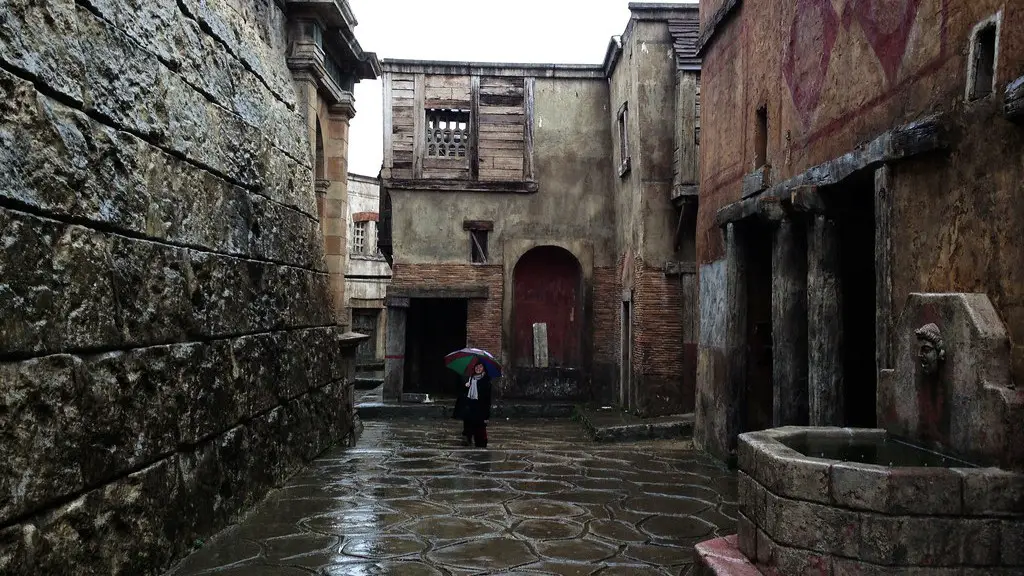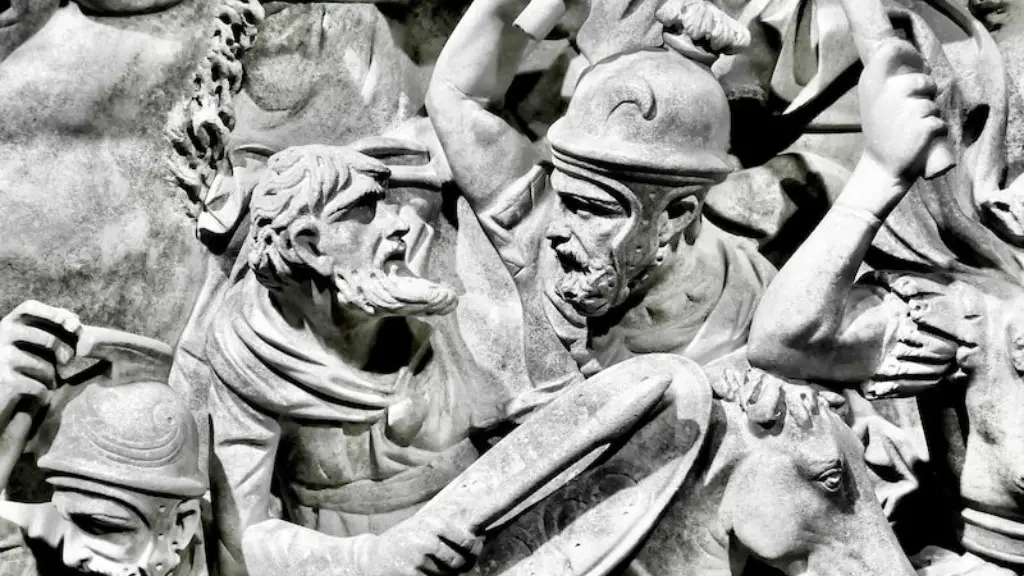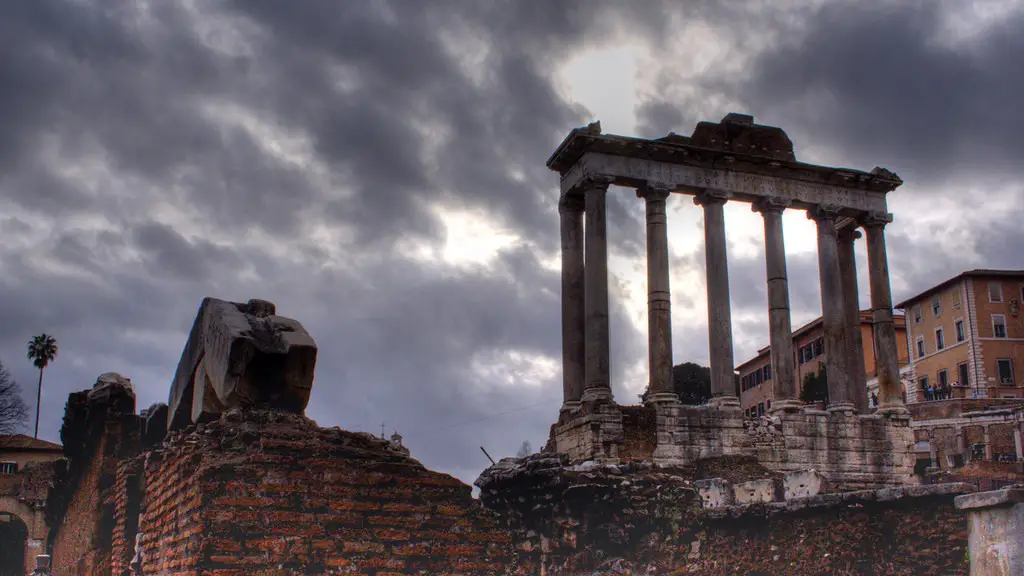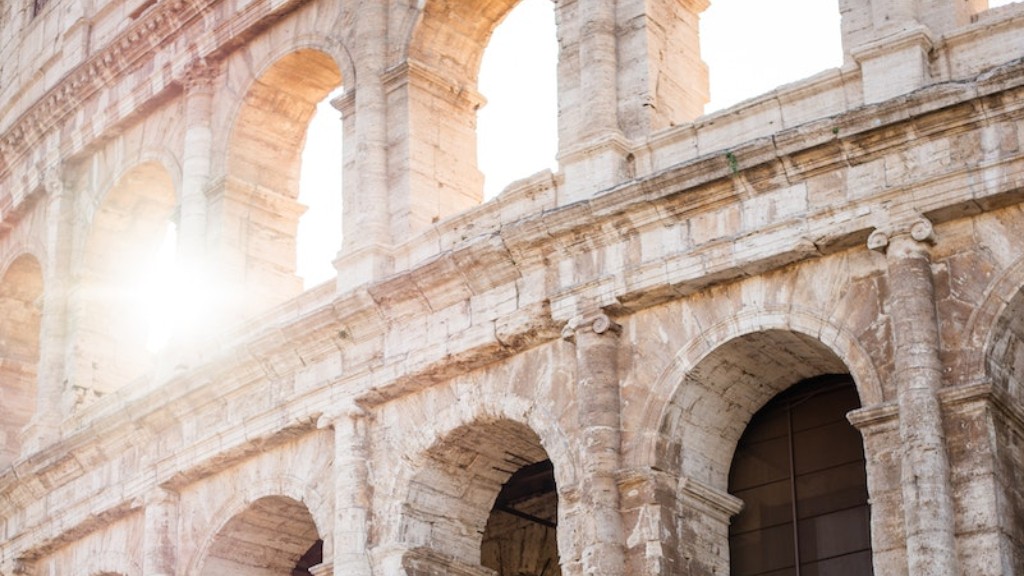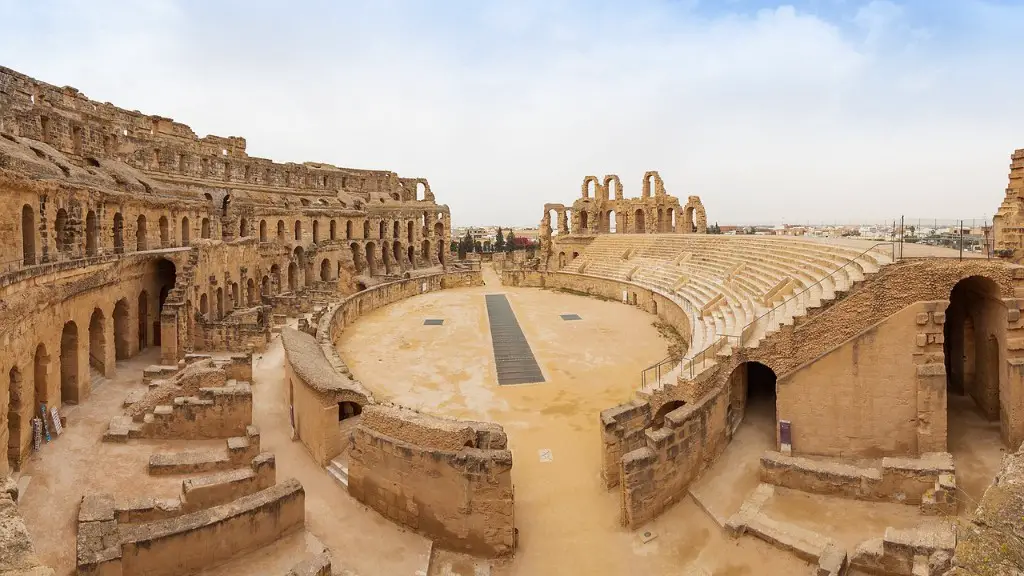Ancient Religion in Rome
Religion in Ancient Rome was extremely important to their culture. It was interwoven with their history and societies and determined their daily activity, from politics to food. Religious ceremonies in Rome were a way to bring the people, classes, and cultures together.
Ancient Rome was filled with gods, goddesses, and countless other divine beings. The head of the pantheon was Jupiter and his accompanying Twelve Olympian gods. Ultimately, Jupiter was viewed as the god of all things, the ruler of the sky, and the protector of Rome. He received the most important offerings, such as sacrifices and libations.
Roman religion was also highly adaptable, allowing different gods from other regions to be merged with the traditional gods. This allowed the Romans to quickly assimilate new territories and to unify different religious cultures under Rome. For example, they adopted the Greek gods and goddesses, as well as the Romanized versions of gods from the Middle East, Persia and Africa into the Roman pantheon.
In addition to worshipping the gods and goddesses of the Pantheon, the Romans also had a range of magical beliefs and practices. They believed that prayer and sacrifice could influence the gods and gain their favor. They also believed in the power of dreams and divination. Many Roman households had household shrines, called Lares, dedicated to the spirits that protected their home.
The Roman calendar was deeply interwoven with religious practices. Their public ceremonies and festivals were based on the lunar cycle and were tightly linked to the gods. A lot of the festivals celebrated the gods, but were also used to celebrate the Roman culture and further unify the people.
There were three levels of public worship: state cults, official cults, and private cults. State cults were the most important and included festivals to Jupiter, Mars, and Quirinus, who was believed to be the deified Romulus. These cults showed the importance of the gods in the Roman world.
Official cults were carried out for lower ranking gods and usually involved some kind of public celebration or holiday. Private cults were focused on specific issues, such as wedding ceremonies. Private sacrifices were also commonplace and were conducted in the home.
Hierarchy in Ancient Roman Religion
The ancient Romans had a complex hierarchy of gods and goddesses, as well as other divine beings. At the top of the hierarchy was Jupiter, the king of gods. Other important gods were Mars, Neptune, and Vulcan. Below them were the Twelve Olympians, such as Apollo and Diana, who each had their own areas of influence. In addition to these gods, there were numerous lesser gods, such as Janus, the god of beginnings and transitions, and Vertumnus, the god of seasons.
The Roman gods were not worshiped with the same reverence as they were in other cultures. Instead, they were often viewed as distant and removed from the affairs of mortals. This allowed the Romans to exercise their own free will and make their own decisions, without relying on the gods.
The Romans also believed in a range of magical and mystical practices, such as divination and the power of dreams. Romans could go to a temple to consult the gods and divine their future. They also believed that prayers and sacrifices offered to the gods could influence their favor.
The Roman calendar was also infused with religious symbolism and practices. The most important days of the year were the Ides, when the gods were thought to be at their most powerful. The Ides were also the days when new laws were voted on and proposed, thus linking the Roman system of government with their religion.
The Roman religion was dynamic and constantly evolving. As the Romans conquered new territories, they adapted and adopted new gods and goddesses. This allowed the Romans to absorb new cultures, while still maintaining their own individual identity.
Political and Social Impact of Religion in Ancient Rome
Ancient Rome’s strong religious beliefs were reflected in their politics, society and everyday life. Religion in Rome was not only used to ensure the protection and continuity of their civilization, but it also provided a source of stability and order during times of political unrest.
Roman religion was an important part of their society. The gods and goddesses were given offerings and sacrifices, and prayer was a common part of the daily ritual. Religion in Rome also provided a source of structure for the classes and divisions within society. For example, the patricians had more access to the gods than the plebeians.
Religion was also deeply intertwined with Rome’s political system. The Senate had a number of important religious duties and was responsible for carrying out ceremonies for the gods. In addition, religious festivals and holidays were often accompanied by political activities.
Roman religion also had an important impact on the legal system. In Ancient Rome, it was believed that the gods had a role in judging cases. Trials were often accompanied by ritual offerings and sometimes the verdicts were decided through divining methods.
Religion in Rome was interwoven with their everyday lives. It played an important role in their politics and social structure, and provided a way for the different classes to be unified under one faith. Roman religion was also adaptive and allowed for the incorporation of new gods and beliefs from different cultures.
Religious Rituals in Ancient Rome
Religious rituals in Ancient Rome were a way for the people to honor their gods and goddesses. These rituals were performed throughout the year in a variety of ways. Some were elaborate ceremonies in the temples while others were simple offerings made in private homes.
The most important ritual in Rome was the offering of sacrificial animals to the gods. This was done to ask for their help and to give thanks for favors granted. Sacrifices were also done to mark important times in the calendar or to mark a special occasion in the life of an individual or family.
Religious offerings were also made in the form of libations. Wine or oil was offered to the gods as a sign of devotion. Offerings of wine and oil were especially important during festivals and important occasions. The libations were poured onto the ground or a shrine to give thanks to the gods.
Religious festivals were another important part of Roman religious life. These festivals were held to commemorate the gods and goddesses, but also to bring the people together in a communal celebration. During the festivals, offerings and sacrifices were made, games were played, and prayers were recited to honor the gods.
Other religious practices in Rome also included divination and the interpretation of dreams. People would go to sacred oracles to seek advice or divine their fortunes. In addition, interpreters of dreams were consulted to discover hidden truths or to understand mysteries.
Religion in Rome was a vital part of their society and culture. The gods and goddesses were honored through offerings, sacrifices, and festivals, while divination and dream interpretation were used to gain insight into their lives. These rituals and ceremonies brought the people of Rome together in a common faith.
Conclusion
Religion in Ancient Rome was an integral part of their culture and society. The gods and goddesses were honored through offerings and sacrifices, while festivals and celebrations were used to bring the people together in a unified faith. Religion was deeply intertwined with the political system, providing a source of stability and order for their civilization.
Religious practices in Rome changed over time, incorporating new gods from other cultures. This allowed Rome to adapt to new territories and to unify different religious groups under their dominion. The gods and goddesses were not viewed as powerful and all-knowing, but instead as distant figures who could be approached through prayer and ritual.
